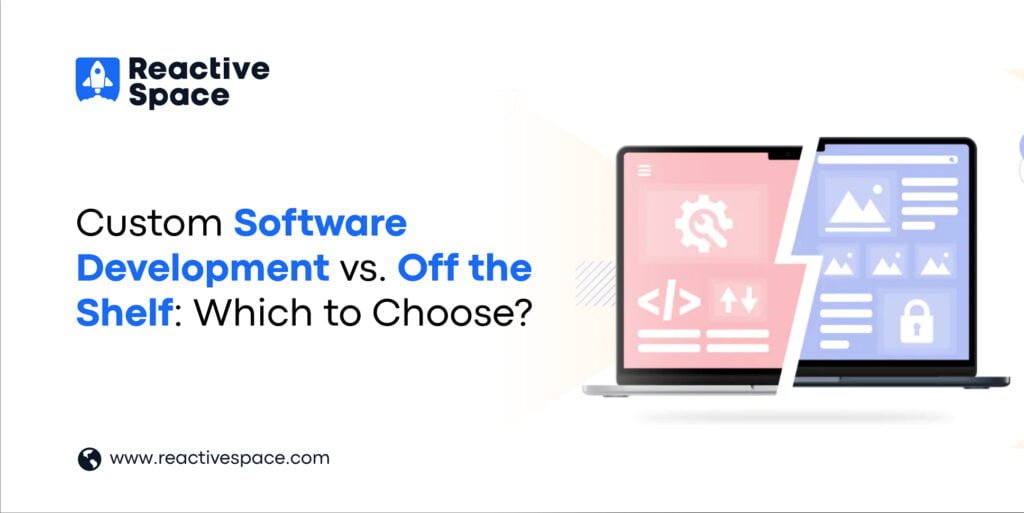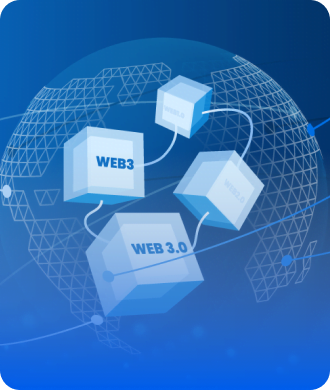
Introduction
In the software world where everything is digital, businesses face a choice between creating their software or using off-the-shelf solutions. Each option has its benefits and is suitable for different purposes. This blog will clarify the distinction between custom and ready-made software, helping businesses select the best fit based on their specific requirements and goals. Let’s dive deep into the discussion.
Understanding Custom Software Development
Custom software development involves designing unique applications to meet specific business needs. This approach allows businesses to incorporate special features and functions that match their workflows and goals. Custom software is crafted to tackle specific challenges and improve operational efficiency. This article will delve into the advantages of custom software development and how it can boost a business or company’s performance.
Understanding Off-the-Shelf Software
Off-the-shelf software, also known as commercial software, refers to pre-built applications that are ready for purchase or subscription without requiring custom development. These software solutions are developed to cater to a wide range of users and industries, offering standardized features and configurations. One of the main advantages of off-the-shelf software is its accessibility and quick implementation, as it can be deployed relatively quickly compared to custom-built solutions.
However, businesses should consider factors such as scalability, integration with existing systems, and the level of customization needed when going for off-the-shelf software.
Comparison between Custom Software vs. Off-the-Shelf
If we talk about the comparison, a few things need to be defined before a clear understanding of both the terms. The comparison includes.
Flexibility and Customization
Custom software offers extensive customization options, allowing businesses to run the application according to specific requirements. In contrast, off-the-shelf software provides limited customization, with predefined features that may not fully align with unique business needs.
Cost Considerations
Custom software development services involve higher upfront costs due to their personalized nature. However, it eliminates recurring licensing fees associated with off-the-shelf solutions. Off-the-shelf software is cost-effective initially but may include additional expenses for upgrades and maintenance.
Implementation Time
Custom software development requires more time for planning, design, and development compared to deploying off-the-shelf software, which is readily available for immediate use. The implementation timeline varies based on project complexity and customization requirements.
Scalability
Custom software is highly scalable, allowing businesses to adapt and expand the application as their needs evolve. Off-the-shelf software may have limitations in scalability, with predefined features that restrict flexibility in accommodating growing demands.
Maintenance and Support
Custom software comes with dedicated maintenance and support, ensuring timely updates and troubleshooting. Off-the-shelf software relies on vendor-provided support, which may not address specific business concerns or require additional fees for premium services.
Key Considerations When Choosing Between Custom and Off-the-Shelf Software
Before choosing between the custom and off-the-shelf software there are some things that you need to define to choose the right one. The key considerations are as follows.
Business Requirements
Evaluate the unique requirements and workflows of your business to determine whether custom features are essential for operational efficiency and competitive advantage.
Budget
Consider upfront and long-term costs associated with custom development and licensing fees for off-the-shelf solutions, aligning your budget with expected ROI.
Timeline
Assess project timelines and urgency, weighing the time investment required for custom development against the immediate deployment of off-the-shelf software.
Long-Term Goals
Align software decisions with long-term business goals, prioritizing scalability, adaptability, and future-proofing.
Case Studies
Explore real-world examples of businesses that have benefited from custom software solutions and those that have leveraged off-the-shelf software to achieve operational excellence.
Conclusion
In conclusion, choosing between custom software development and off-the-shelf solutions hinges on several factors including your business’s unique requirements, budget constraints, and long-term objectives. Custom software offers tailored solutions that can precisely align with your workflows and goals, but it typically requires a higher upfront investment.
On the other hand, for the offshore software development services off-the-shelf software provides quicker deployment and lower initial costs, although it may require some compromises in terms of features and flexibility. When making this decision, it’s crucial to consider future scalability and growth potential. By carefully evaluating these aspects and aligning them with your business strategy, you can make informed choices that optimize your digital capabilities and drive success in the long run.
Ready to optimize your digital strategy?
Contact us today to discuss which custom software development solution best fits your business needs and drives long-term success.
Book a Call


